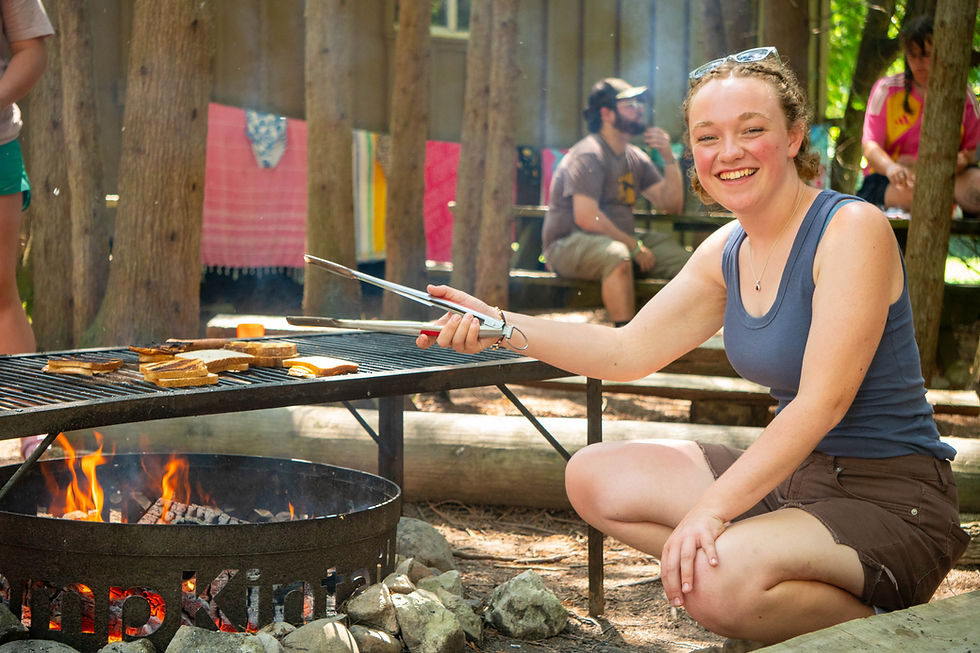2025 May Kin-Tales
- Camp Kintail

- Jun 5, 2025
- 2 min read
Dear friends,
Over the last ten years, there has been a lot of discussion about cell phones at summer camp across North America. We have had the same conversations in the Kintail office as well. As cell phones have become a tool for school, connection with friends and family, and entertainment, most of our campers use a cell phone at home. Ever since the pandemic, for very clear reasons, children have relied on their phones even more than before. This makes it a challenge when children come to camp, and we ask them to give their phones to their parents. We do this for a number of reasons, including safety in cabins where children change and sleep, eliminating the possibility of cyber-bullying, and helping campers stay connected to the experience of being at camp and making new friends.
We revisit this decision regularly, and a recent book called The Anxious Generation by Jonathan Haidt, outlines even more reasons why children might need to have a break from their cell phone. I recommend this book to you, as a fellow parent. It is not a comfortable read, and it challenges many of the decisions I have made along the way regarding phone and screen time. The book spends a lot of time connecting the crisis in youth mental health to the rise in cell phone and social media usage. While there is a lot of sobering information, Haidt does provide a lot of ideas for parents, schools, and governments to help promote healthy childhoods and adolescence. Much of his advice boils down to this: fewer screens and more play. And also to send your child to a camp without phones.
Camp provides the opportunity for a play, something we (ironically) take very seriously. Camp is a great place for children to try new things, challenge their limits, be silly, and simply be a child. Some of the best times campers report to me are when their cabin built a "Home in the Woods" (a fort or shelter) or explored the creek or dug a giant hole on the beach. Play is central to who we are and to what children need to develop joy and confidence. Not having screens at camp increases the chances that play and delight happen. There are no distractions from the activities or the people in front of you. Empathy is grown, problem-solving skills are increased, and friendships are deepened without screens and phones. We can't wait to create a beautiful community together, free from the stress of screens and filled with the joy of play!
In hope, Theresa "Trillium" McDonald-Lee





Comments